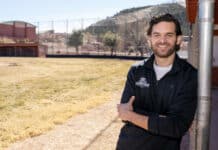Last month the city of Sedona was informed by the Arizona Attorney General’s Office that it was in violation of a state law.
Two weeks later the matter was resolved as the Sedona City Council on May 22 voted unanimously to amend a city code pertaining to short-term vacation rental requirements. But that’s not to say they did it quietly.
In a letter to the AG’s office dated May 29, City Attorney Robert Pickels said that while the city respects and will abide by the decision, it does not agree with it nor the process in which the violation came about.
“There are obvious flaws that need to be resolved forthwith by the Arizona Legislature,” Pickels wrote. “The fact that only the investigating body has direct access to the Arizona Supreme Court following a determination that a violation exists; that cities, towns and counties are required to risk the wellbeing of their constituents to challenge a unilateral conclusion; and that no accountability exist on the member of the Legislature making the request to the own district’s voters render [Senate Bill 1497] draconian in both design and application.”
Pickels concluded his response by saying, “I anticipate that further efforts will be undertaken in the near future to convince the Legislature that there is a more equitable way to achieve their desired outcome. We urge the Attorney General to join and support those that seek to level the playing field in the pursuit of just results.”
Following an investigation, a 10-page AG report states that the city’s ordinance requiring short-term vacation rental owners to obtain a business license violates state law.
In early April, the city received a notice of submission of legislator request for investigation from the AG’s office. The investigation ties into Senate Bill 1487, which went into effect August 2016. It prohibits cities from passing laws that conflict with state laws.
The complaint was filed on April 4 by Arizona State Rep. Darin Mitchell [R-District 13], who represents Yuma and Buckeye.
In his complaint Mitchell reiterated a concern expressed by the Goldwater Institute in that the city’s business license requirement for short-term rentals was discriminatory because no such license is required for residential rentals.
The city currently requires a business license as a means to collect emergency contact information. However, the Goldwater Institute, a conservative libertarian public policy think tank based in Phoenix, claim that it is a regulation not applied to other housing types.
Sedona was the focus of the 10th investigation to date under SB 1487. Of the previous nine cases, three were deemed to violate state law, two did not violate state law, two may have violated state law and two complaints were withdrawn.
Of the three that were deemed to be not in compliance with state law, in each of those cases the cities complied and modified their ordinances, AG spokeswoman Mia Garcia said.


















